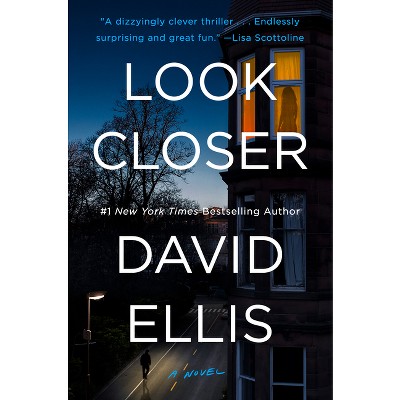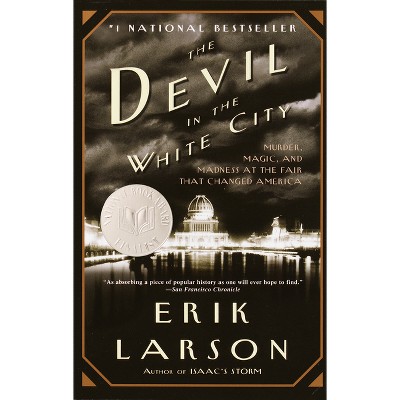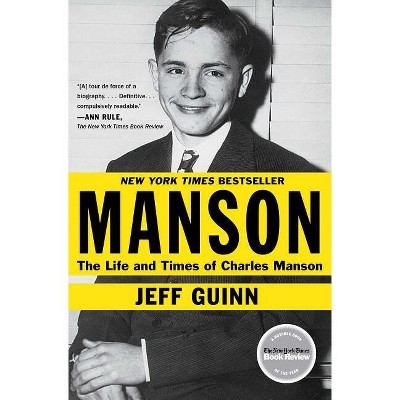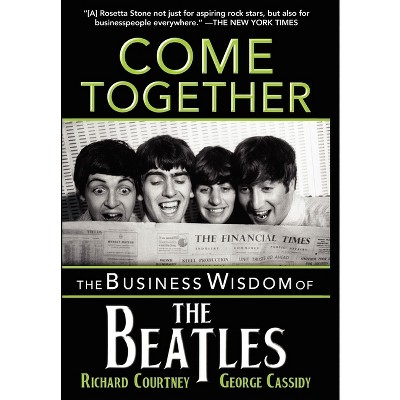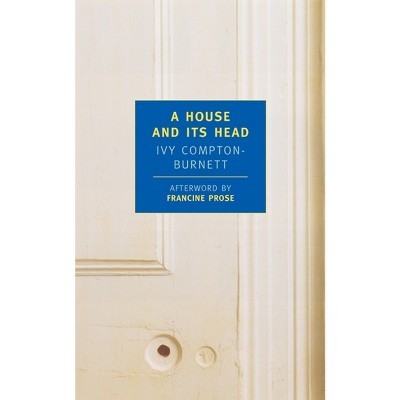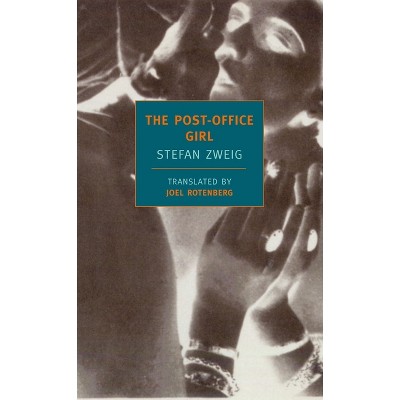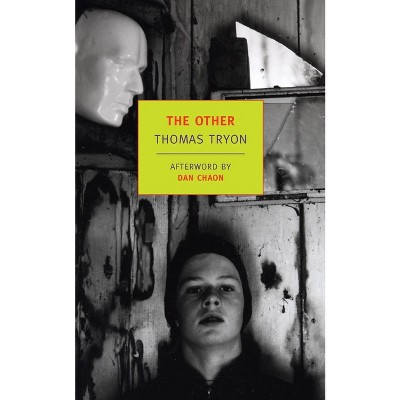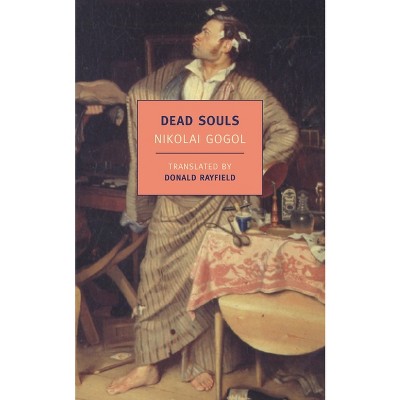Sponsored

Novels in Three Lines - (New York Review Books Classics) by Félix Fénéon (Paperback)
Out of Stock
Sponsored
About this item
Highlights
- A NEW YORK REVIEW BOOKS ORIGINAL Novels in Three Lines collects more than a thousand items that appeared anonymously in the French newspaper Le Matin in 1906--true stories of murder, mayhem, and everyday life presented with a ruthless economy that provokes laughter even as it shocks.
- About the Author: Félix Fénéon (1861-1944) was a French anarchist, editor, and art critic in Paris during the late 1800's.
- 208 Pages
- True Crime, Murder
- Series Name: New York Review Books Classics
Description
Book Synopsis
A NEW YORK REVIEW BOOKS ORIGINAL Novels in Three Lines collects more than a thousand items that appeared anonymously in the French newspaper Le Matin in 1906--true stories of murder, mayhem, and everyday life presented with a ruthless economy that provokes laughter even as it shocks. This extraordinary trove, undiscovered until the 1940s and here translated for the first time into English, is the work of the mysterious Félix Fénéon. Dandy, anarchist, and critic of genius, the discoverer of Georges Seurat and the first French publisher of James Joyce, Fénéon carefully maintained his own anonymity, toiling for years as an obscure clerk in the French War Department. Novels in Three Lines is his secret chef-d'oeuvre, a work of strange and singular art that brings back the long-ago year of 1906 with the haunting immediacy of a photograph while looking forward to such disparate works as Walter Benjamin's Arcades Project and the Death and Disaster series of Andy Warhol.Review Quotes
"In these artfully concise summaries of news events, Feneon, an enigmatic French journalist and publisher, provides a glimpse of a belle epoque that belongs not to artists or intellectuals but to locksmiths, plumbers, seamstresses and the occasional sex offender." --Los Angeles Times
"In 1906, suspected terrorist, anarchist, and literary instigator Félix Fénéon wrote more than a thousand small bits for the Paris newspaper Le Matin. Each was a bizarre yet enigmatic, fragmentary, often scandalous, report." --Steven Heller, imPrint
"A Parisian anarchist, dandy and literary editor born in 1861, Feneon was at his most eloquent when saying as little as possible. Novels in Three Lines is a collection of what newspaper editors used to call squibs - very short news items, similar to the sentence fragments that populate modern cable news crawls. The book collects more than 1,000 news items (what the French call faits divers) printed in Le Matin in 1906, all anonymously written by Feneon. Century-old one-liners from French fishwrap might sound like a shaky premise for a book, but these true-life tales of murder, revenge, suicide, deceit and religious strife feature the fine carpentry of a literary stylist." --Toronto Star
"Veering from horrific to hilarious and offering an acute overview of life at the time, these ultra-condensed tales of politics and mayhem hover between poetry and prose and redefine nonfiction... it is a seminal modernist masterpiece of form and sensibility, and still provocative. Sante did a brilliant job of translating it into English." -CHOICE
"[D]eliciously tart and brilliantly compacted micro-vignettes of daily life in all its ironies, passions and dark mysteries." --Sukhdev Sandhu
"These fillers, or fait divers, ...recount all manner of assault, graft, accident, labor strife, and murder in spare, factually tidy detail...These epigrammatic plots invite being read aloud, as well as other diversions." --Bookforum
"Layered, ironic, amused, Feneon's voice is unmistakable..a little yo-yo of a narrative that gives pleasure no matter how many times it's flung. The construction, the comic timing, the sly understatement that demands instant rereading." --The New York Times
"Today's lurid tabloid journalism has nothing on Novel in Three Lines, originally published anonymously in the French daily Le Matin in 1906. The man behind them was one Felix Feneon, part-time anarchist, and they reveal a delight in the fateful cruelties of life: Random shootings, premeditated suicides, and awful robberies were his main fixations. It's no insult to our own taste for the sensational when we admit to finding Paris the city more fascinating than Paris the woman." --New York Magazine
"The Feneon, like a book of haikus entirely devoted to suicide, murder, fatal accidents, and incestuous sex, is a creepy introduction to the shadowed brain cavity of a Neo-Impressionist who certainly believed in 'propaganda by the deed' and may have plotted one or more anarchist assassinations." --Harper's Magazine
"Prolific writer and cultural critic Sante (Low Life) has translated half a year's worth of concise news blurbs written in 1906 for a Paris newspaper by Fénéon, writer, anarchist and promoter of artists like Seurat and Bonnard." --Publishers Weekly
"[T]he "Nouvelles en trois lignes"...were simply news items concerning accidents, quarrels, mayhem, fires and murders, reduced to minimal length and rendered tragic-comic or ludicrous by artful diction, euphemism, understatement and other devices. They have stylistic interest, contain political and social overtones, and convey a concept of the absurdity of life." --French Review
"Fénéon is best known today for his early championing of such men as Arthur Rimbaud, Francis Poictevin, and Jules Laforgue; for the art criticism that helped establish Neo-Impressionism...; for his Nouvelles in trois lignes, the pithy and often startlingly phrased newspapers accounts of current events that have been cited as predecessors of 'minimal' story writing; and for the exhibitions and sales of contemporary paintings he organized at the Bernheim-Jeune gallery after 1906." --American Historical Review
"As a regular journalist, Fénéon is best remembered for his devastatingly spare News stories in Three Lines for Le Matin-cruelly deadpan summaries of the minor dramas of the day." --Burlington Magazine
"In his time, Félix Fénéon was one of the most influential critics of art and literature in fin-de-siecle Paris... He was, clearly, a man to whom history-cultural history-owes some recognition." --The New York Times Book Review (James R. Mellow)
"Félix Fénéon, editor, critic and stylist extraordinaire...the most brilliant critic of the day." --The New York Times (John Russell)
"[T]he era's most influential art critic" --The New Statesman
"The fastidious editor Félix Fénéon, who placed an incisive style in the service of avant-garde interests on every front, married rhetoric and action, art and politics. Closely associated with Symbolism, and with the Neo-Impressionism whose theoretical and formal basis he defined in 1886, Fénéon was probably the most important art critic of the late nineteenth century. While conscientiously clerking at the War Office, he used his discerning eye to appreciate literary and visual subversion..." --The New Republic
"[T]he greatest critic of his age" --William Everdell author of The First Moderns
About the Author
Félix Fénéon (1861-1944) was a French anarchist, editor, and art critic in Paris during the late 1800's. Born in Turin, he moved to Paris at the age of 20 to work for the Ministry of Defense. He attended the Impressionist exhibition in 1886, later coining the term "Neo-Impressionism" to define the movement led by Georges Seurat. He was the first french publisher to publish James Joyce. In 1892, the French police searched his apartment, claiming him to be an active anarchist. That summer, along with other intellectuals and artists, Fénéon was placed on trial, a case which is now know as The Trial of the Thirty. Although the charges were dismissed, he was discharged from the Ministry of Defense. Famously painted by Paul Signac, the painting now hangs in New York's Museum of Modern Art. Lucy Sante teaches writing and the history of photography at Bard College. Her books include Low Life, Evidence, and The Factory of Facts.Shipping details
Return details
Trending Non-Fiction



